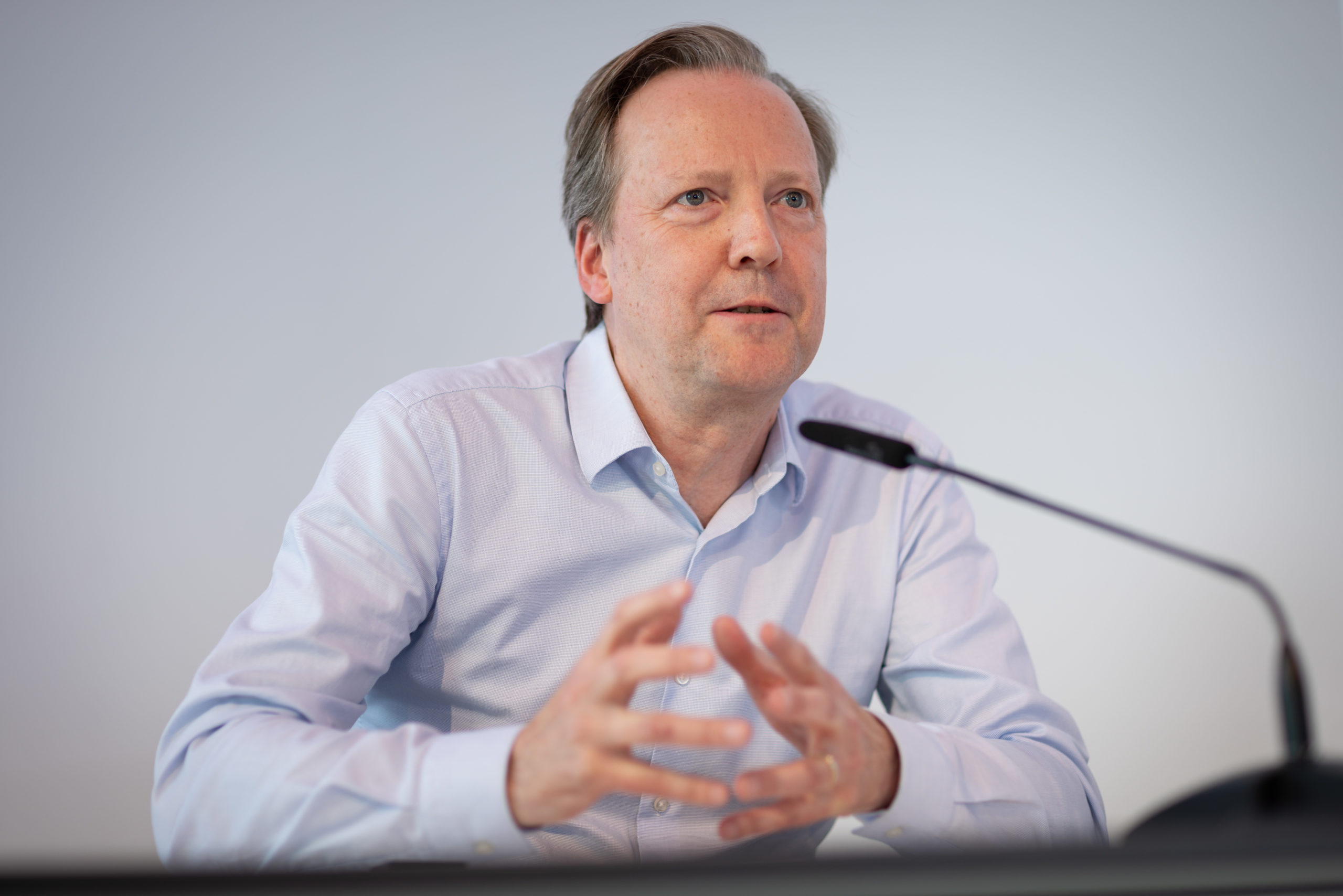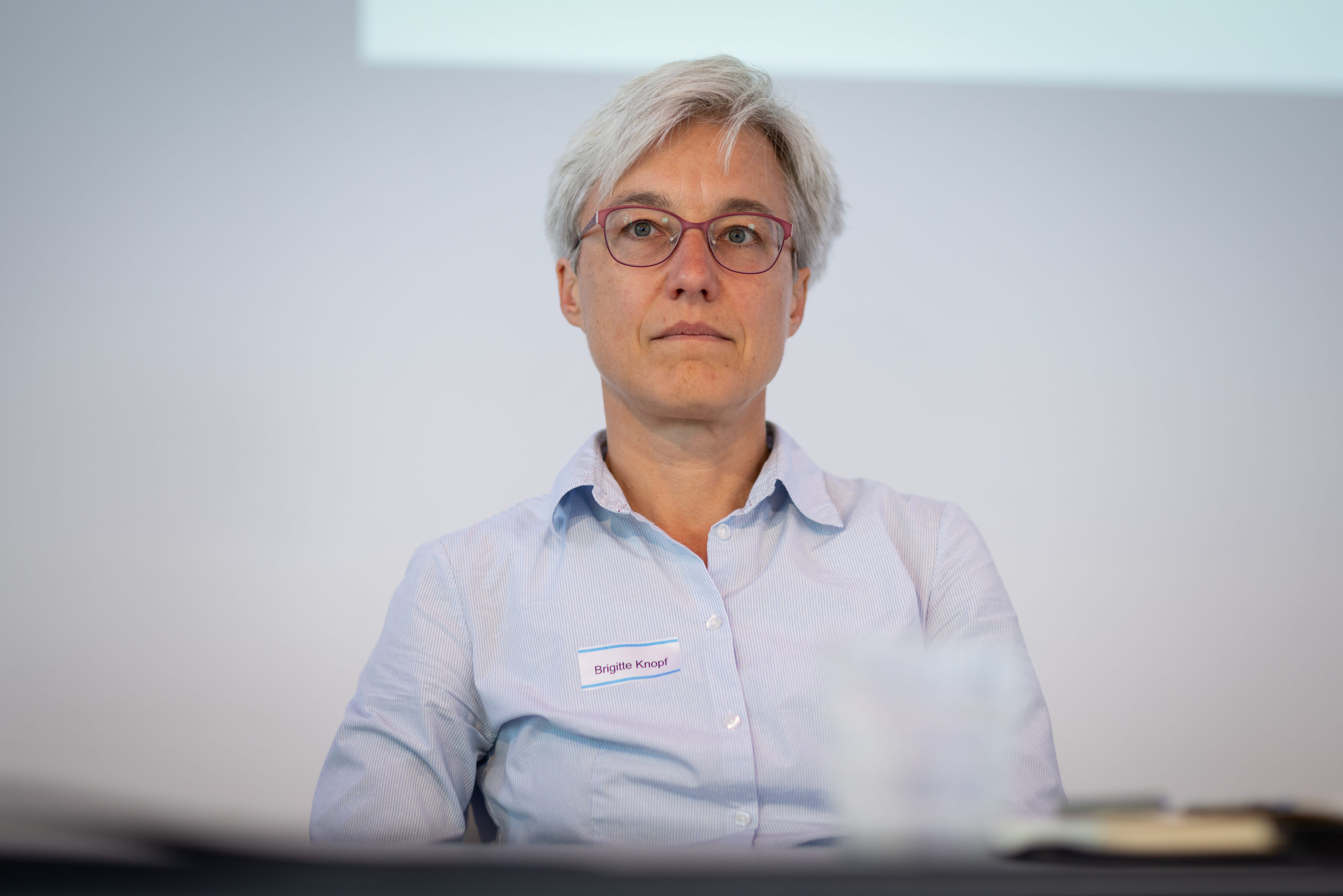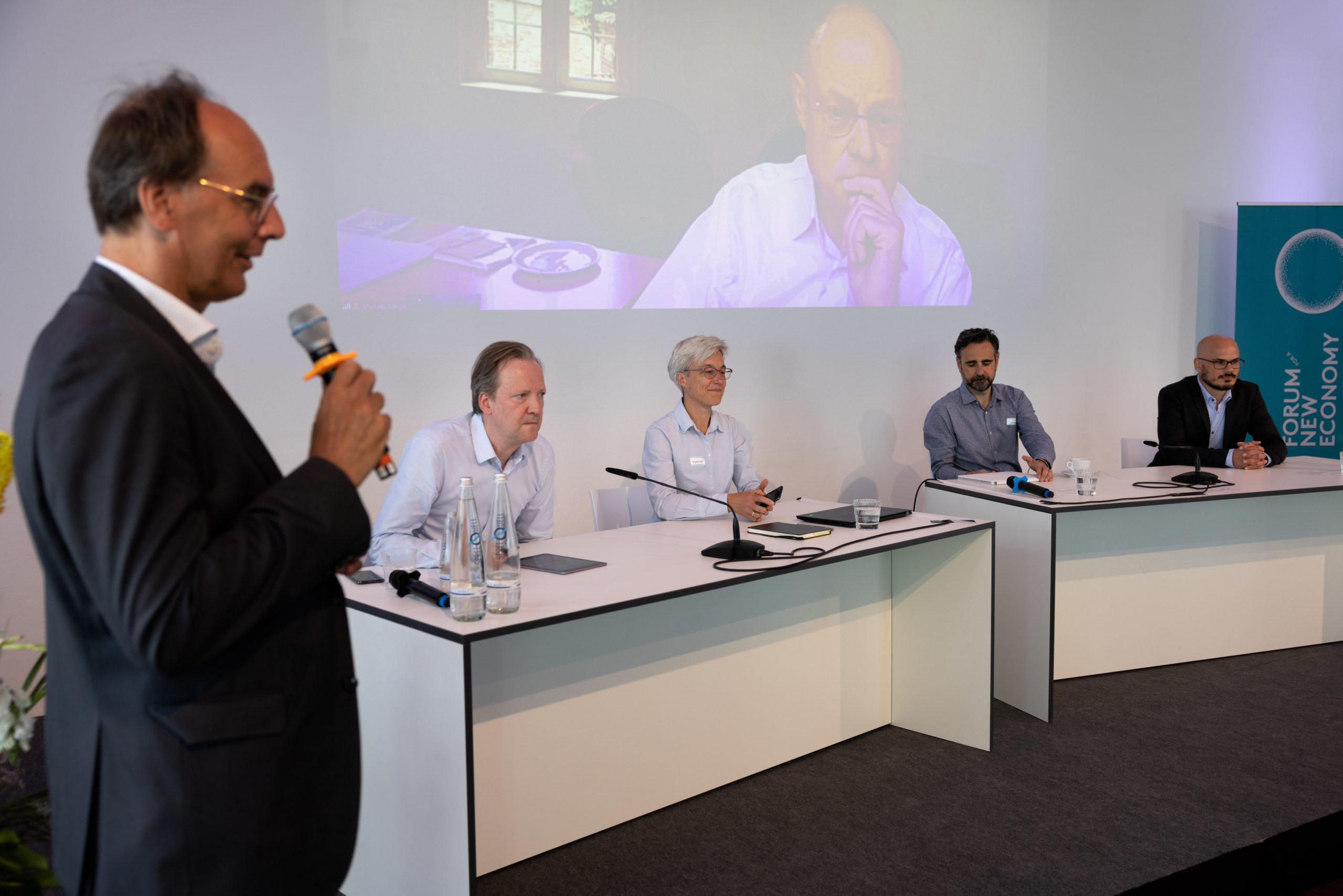CLIMATE
Modern Climate Policy
Tom Krebs, Eric Lonergan, Brigitte Knopf, and Jörg Peters discuss the need for modern climate policy beyond the CO2 price at our X New Paradigm Workshop.
BY
SONJA HENNENPUBLISHED
2. JUNE 2022READING TIME
4 MIN
A modern climate policy needs much more than the supposed panacea of a CO2 price. Rather, it must start with massive public investment in green infrastructure, such as hydrogen. These are the key hypotheses of Tom Krebs in a study he is currently preparing as a Forum paper. The theses were discussed at our X New Paradigm Workshop with Brigitte Knopf, Eric Lonergan and Jörg Peters.
According to Tom Krebs, while the necessity for decisive action against climate change has become a consensus in world politics, the adjustment costs to a carbon-neutral economy are still too little understood. Moreover, policy instruments beyond carbon pricing are to date too often neglected in traditional climate policy and public debates. Where debate is taking place, it centers on the question whether current carbon prices suffice to spark effects. What climate policy would rather need, following Tom Krebs’ analysis, is a four-component framework featuring public infrastructure investment, carbon pricing, industrial and labor policy. To this, Jörg Peters added the importance of the normative dimensions of the debate: the social cost of carbon should be a yardstick used to judge which economic policy proposal is reasonable and which is not.
Eric Lonergan argued that when it comes to climate policy, not only are we missing crucial policy components, but we are looking at the wrong chapter of the textbook. Traditional economics is too focused on factoring externalities to collapse emissions. This is aided by the fact that people are highly susceptible to the narrative of ‘the polluter pays’. What this misses, however, is a clear diagnosis of the problem and how to combat it. The goal, he says, should be to generate electricity fully sustainable, and then electrify the whole economy. In this sense, regulating utilities and reducing the cost of capital for sustainable alternatives, and targeting the relative price of substitutes should be the ultimate goal of modern climate policy.
The green alternative should always be cheaper.
Brigitte Knopf was the only one among the discussants arguing that a carbon price, in a properly designed form, was in fact a sufficient and powerful tool to address the climate crisis. The real problem was not with the carbon price but with a lack of commitment and poorly addressed distributional consequences. Hence, strong institutions would be needed to ensure a credible commitment and properly designed sectoral policy packages.




